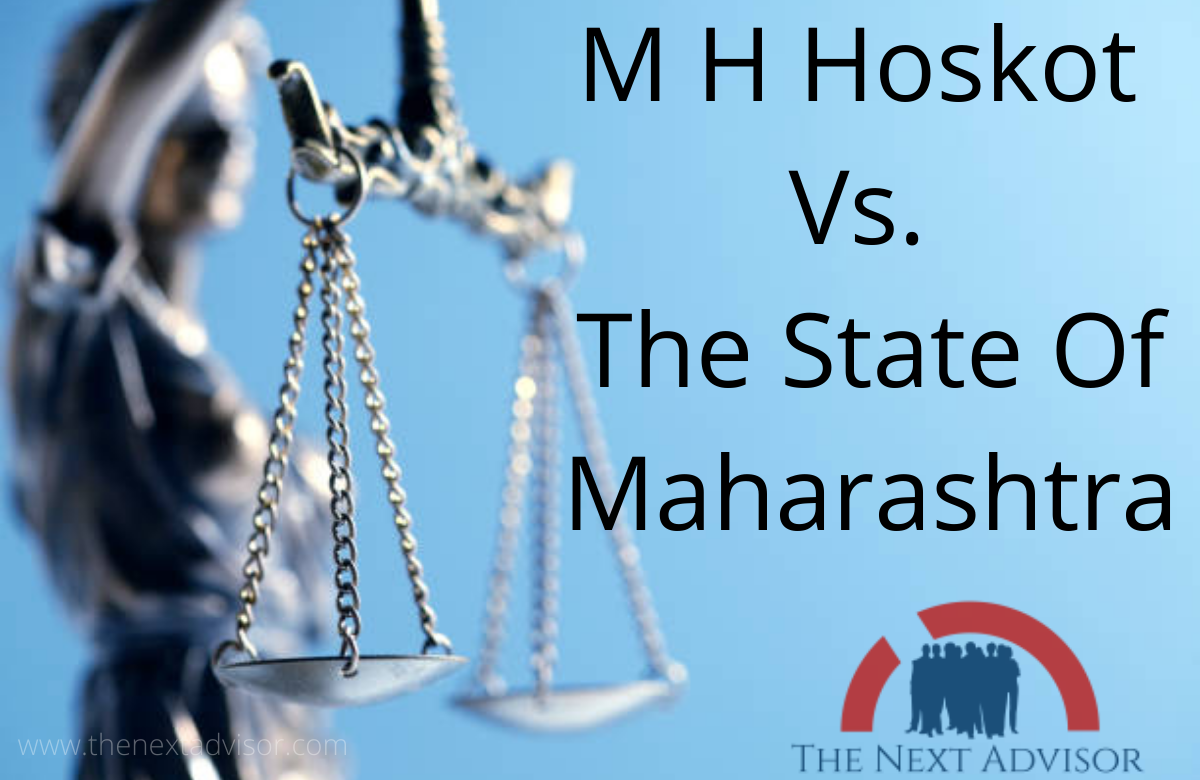Introduction of the case named M H Hoskot Vs. The State Of Maharashtra
The present case is named M H Hoskot Vs. The State Of Maharashtra is related to Articles 21, 22, 39A, 39A, 136, and 142 of the Constitution of India. In this case, those circumstances have been discussed under which special leave can be granted. In this case, the right of appeal of convict and duty of jail Authorities to make available copies of judgments and duty of Government to provide legal services, are also explained.
Facts Of The Case:-
The story of the Prosecution Dr. Madhav Hartawdanrao Hoskot- was a Reader in the Saurashtra University. He approached Mr. Dabhokar, a block-maker of Bombay and placed an order to prepare an embossing seal in the name of the Karnataka University, Dharwar, and forget a letter of authority purporting to have been signed by the Personal Assistant to the Vice-Chancellor of the said University authorizing him to get the seals made.
The Block maker gave pre-emptive information to the police leading to the unearthing in time of the criminal scheme. The Police reached on spot and arrested Sr. M. H.Hoskot. The petitioner was tried by the Court of sessions and held as proved beyond reasonable doubt that the petitioner was guilty of the grave offenses charged, namely, under Section 417 read with 511, 467, 468, 471 read with 467 of Indian Penal Code. But the Session Court awarded a soft sentence of simple imprisonment till the rising of the Court and some fine. Two appeals against the decision of the Court of Sessions were filed.
One appeal was filed by the petitioner of the case (M H Hoskot Vs. The State Of Maharashtra), M.H. Hoskot against the conviction and in allowance of the State’s prayer for enhancement, impose rigorous imprisonment for three years. Against the sentence of rigorous imprisonment for three years pronounced by the High Court judgment was pronounced in 1973.
The explanation offered by the petitioner for condemnation of delay was that the High Court granted a copy of the judgment of 1973 for him through the Superintendent, Yaravada Central Prison, Pune but it was never served to him. There is also nothing on record which hears his signatures in taken of receipt of the High Court’s judgment.
The Supreme Court observed that in these circumstances it may be said that prisoners are situationally at the mercy of the prison ‘brass’ because the petitioner has undergone his full term of imprisonment during this lengthy interregnum but it should be made clear that their right to appeal which is part of the constitutional process to resist illegal deprivation of liberty, is in peril. if district hail officials ipse dixit that copies have been served is to pass muster without a little of prisoner’s acknowledgment. However, the question for determination before the Supreme Court was whether special leave to appeal to the petitioner should be granted or not?
The Supreme Court observed that although the Court had assigned a Lawyer to render free legal service to the petitioner and argued the case on his behalf Dr. Hoskot decided to dispense with legal assistance and he himself argued the case. He has presented his case capably and with analytical precision in his Endeavor to controvert the correctness of the findings of the Courts below.
The Supreme Court listened to the petitioner at some length since this Court is the last in the Indian pyramid of justice and a party in person elicits from the Court extra solicitude so that he may not suffer from a sense of handicap due to the absence of professional legal service.
Conclusion of the case M H Hoskot Vs. The State Of Maharashtra
Thus, in conclusion, in the light of the above discussion, the Supreme Court dismissed the special leave petition of the petitioner. If an accused is well qualified and a person of good family ground and commits offenses of attempting to issue counterfeit degrees, the award of sentence by the Sessions Court, till rising of the Court is too lenient. The Supreme Court can grant special leave to appeal in certain exceptional circumstances in view of concurrent findings of Sessions Court and High Court. M H Hoskot Vs. The State Of Maharashtra), M H Hoskot against the conviction and in allowance of the State’s prayer for enhancement, impose rigorous imprisonment for three years

























